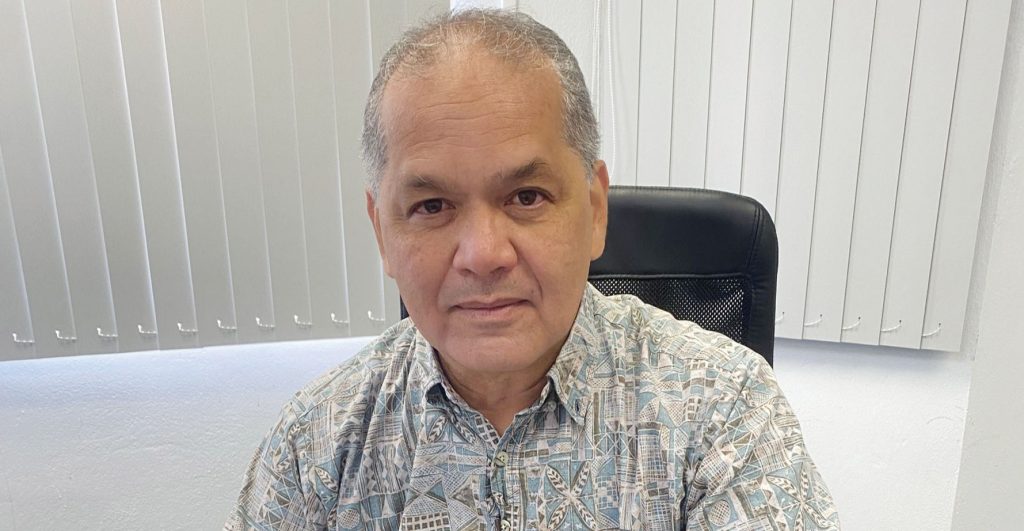‘CUC mandated to adjust rates’
Faced with a barrage of criticism on social media about the increasing power rates, Commonwealth Utilities Corp. executive director Gary P. Camacho explained that CUC’s power rates are a function of the global price of fuel and that CUC adjusts its electric rates not because it wants to but because it is mandated to do so.
“We don’t raise the rate because we want to or don’t want to. We raise the rate because we’re mandated to. We need to raise the rate based on this methodology provided to us years ago by the [Commonwealth Public Utilities Commission]…and that has been something that we’re required to follow,” said Camacho.
It was that CPUC mandate that required CUC to adjust its Fuel Adjustment Charge from $0.34564 per kilowatt-hour to $0.36225 per kWh. CUC warned its users that they will be seeing a slight increase in their power bills this June, reflecting the price increase of fuel in the international markets.
One Facebook user claims that their bill has increased from $350 a month to $766 to $980, and one user stated that their monthly bill used to amount to $70 but is now $1,076.
As CUC explains in its FAC press releases, it says that the CPUC mandates requires CUC to adjust (up or down) the FAC when the Mean of Platts Singapore, or MOPS monthly pricing equals or exceeds a 4.5% differential of the average per gallon cost of fuel used in the calculation of the current FAC rate.
The FAC is one of two components that make up the CUC electric kWh rate, which is used to purchase fuel. The second component is the CUC base rate, which is used to fund operations, projects, and debt service. This base rate has not been increased since April 17, 2014.
The CUC base rate is at 14 cents. The FAC is obviously fluctuating on a month-to-month basis, Camacho said. “Currently, the FAC is at 36 cents, so the methodology that we use on a month-to-month basis to make that adjustment was provided to us by the CPUC.”
He acknowledged that it is “extremely challenging right now” but “we need to raise the rate based on this methodology…and that has been something that we’re required to follow.”
“The CPUC requires us on a month-to-month basis to make an adjustment. …Because of the current international affairs, the war and other affairs, this has affected the supply of oil throughout the world,” added Camacho.
CUC’s fuel supplier, Mobil Oil Mariana Islands Inc., notified CUC last month that there has been an increase in the average international fuel oil prices that will affect the fuel adjustment charge.
Camacho reiterated: “Again, we don’t control rates other than the CUC base rate, but there’s been no adjustment to that since 2014. Even in 2014 we would still have to go to the CPUC to do that. That’s not something CUC has the right to lower on its own.
“It’s very important to understand that we must go through our regulatory commission. …Even to lower rates, we must go to them. But everybody’s goal, even the [CPEC’s] goal, is to ensure that we have the lowest possible rate but still provide and ensure that the utility has the ability to sustain itself.
“So again, it’s a methodology that ensures that expenses are paid and the operation is sustainable,” added Camacho.
























